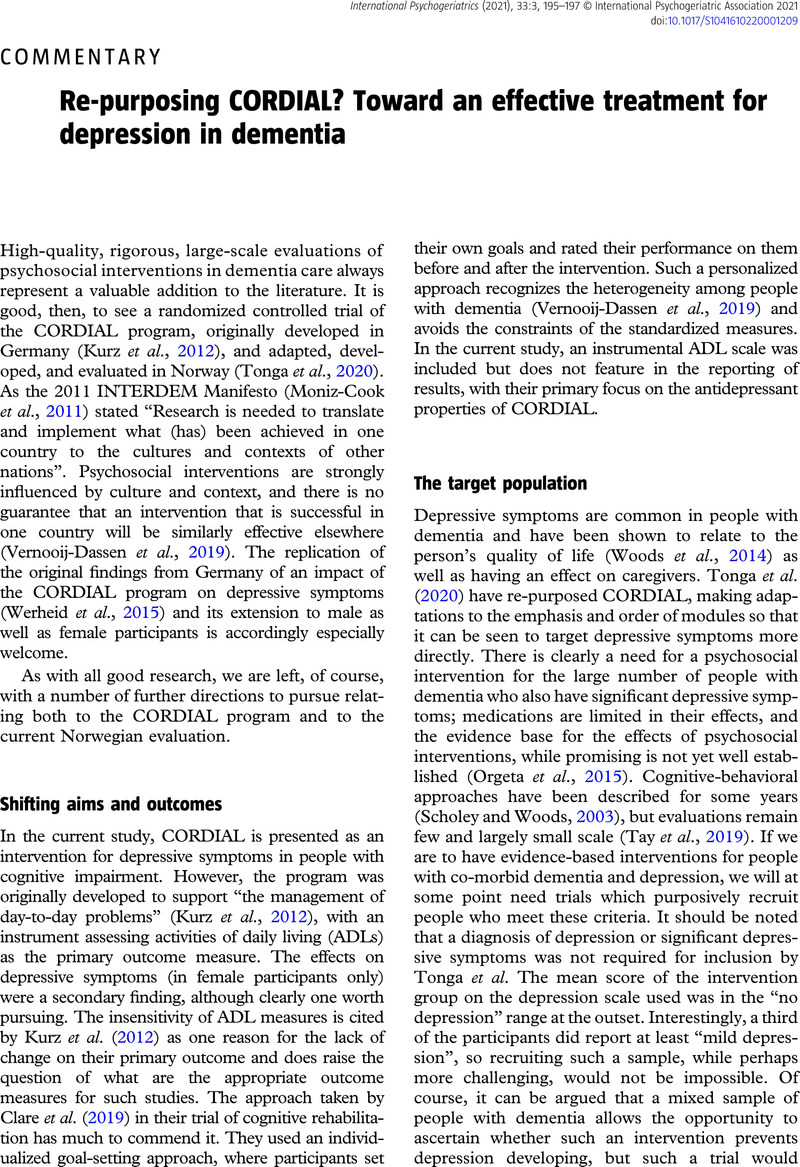Crossref Citations
This article has been cited by the following publications. This list is generated based on data provided by Crossref.
Bartels, Claudia
Abdel-Hamid, Mona
Wiltfang, Jens
Schneider, Anja
and
Belz, Michael
2022.
Antidepressant Effects of a Multimodal Group Therapy Program for Mild Dementia: A Retrospective Evaluation of Clinical Routine Data.
Journal of Alzheimer's Disease,
Vol. 90,
Issue. 4,
p.
1725.
Skov, Sofie S
Nielsen, Maj Britt D
Krølner, Rikke F
Øksnebjerg, Laila
and
Rønbøl Lauridsen, Sigurd M
2022.
A multicomponent psychosocial intervention among people with early-stage dementia involving physical exercise, cognitive stimulation therapy, psychoeducation and counselling: Results from a mixed-methods study.
Dementia,
Vol. 21,
Issue. 1,
p.
316.



